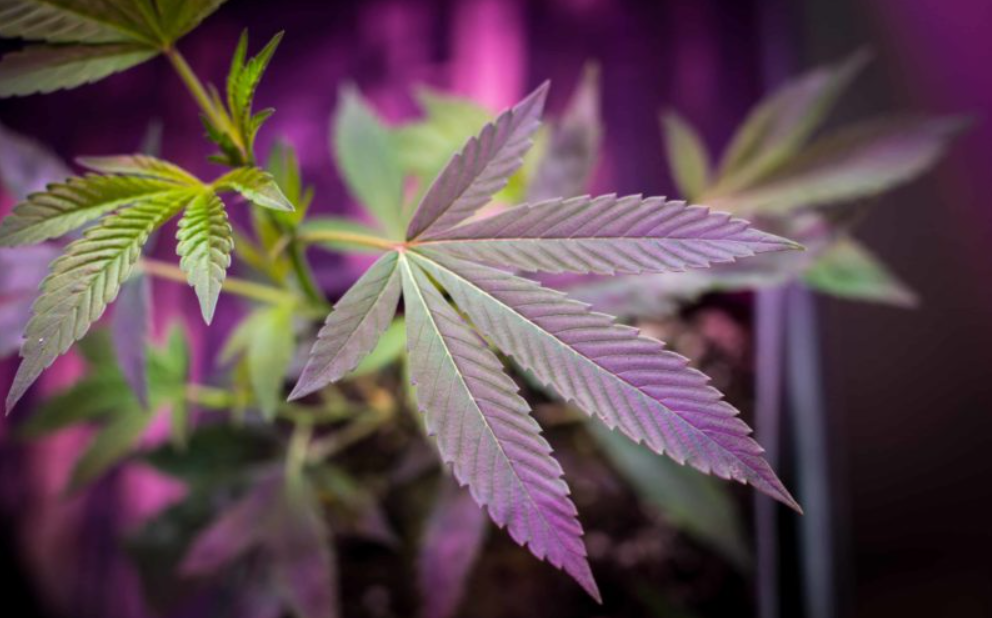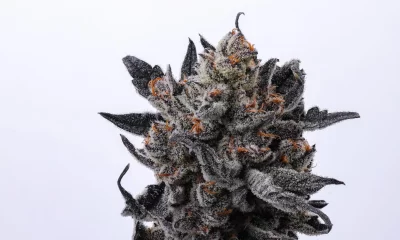Cultivation
Argentine Supreme Court Endorses Medical Cannabis Home Grow

The country’s highest court ruled in favor of allowing parents of sick children to grow their own cannabis to treat their kids.
In a case sure to reverberate around the world, the Argentinian Supreme Court has ruled that parents of sick children are allowed to grow their own cannabis to treat their children. This decision, they ruled, is in line with existing Argentine law—namely the decriminalization of cannabis for medical purposes.
As family law and cannabis legitimization intersect, this development is about as significant as a similar 2014 Israeli case. Namely, families of sick children requiring medical cannabis threatened to immigrate to Colorado unless they were given the right to obtain medical cannabis domestically. The government changed the law within a matter of weeks.
That said, it was not a complete victory in Argentina last week for those who pressed their case. The Court also ruled, unanimously, that a special patient registry now in effect, is not unconstitutional. This was an issue raised by Mamás Cannabis Medicinal (Macame) which presented the plaintiff’s cause. The Court reasoned that the state had the right to control and track all cannabis cultivation—including for medical purposes.
The decision in Argentina is, of course, significant domestically. Yet coming as it does as country after country is beginning to implement or at least talk about implementing home grow more generally, the timing is also very important. In this decision, the Argentine Court seems to be following a global trend that is emerging in countries as disparate as those in Latin America and Europe (Malta, Italy, Luxembourg, and Portugal, so far) to Asia (notably Thailand). Home grow for both recreational and medical use is very much a la mode in the international normalization discussion now clearly underway both legally and politically.
Why Is Home Grow Becoming a Global Default First Step Towards Reform?
There are several reasons for this rather sudden emergence of something that looks remarkably like a consensus at an international level around issues related to home cultivation. Namely, when faced with both a crisis in healthcare delivery systems in the aftermath of both global austerity followed by a global pandemic, and the inevitability of recreational reform, governments are apparently getting the message.
It is becoming increasingly obvious in other words that home grow is not a seditious way to undermine a legal market (of either the medical or recreational kind). Indeed, when tracked (either by being registered or permitted or both), home cultivation of cannabis is a very sensible path towards a normalized market. See Canada—although, of course, the system is not perfect.
Generally, and most certainly in countries on the verge of recreational reform like Germany (for example) today, it is the case that the people most affected by any delay in full legalization, of any kind, are patients. There are close to 200,000 criminal cases pending in the German courts alone for low level possession, cultivation, and/or use. This is a massive waste of time and money that the state can easily cut. In fact, case law is again beginning to trend in this direction, even if only for now, on appeal. However, increasingly it is also the case that courts are recognizing that insurers are also forcing legitimate patients to take legal action to obtain coverage. In the meantime, they must source their own, taking risks along the way.
For this reason, the entire role around home grow is likely to change aus Deutschland as it has in other places, albeit here, at this juncture more likely by legislation than legal action as has just occurred in Argentina.
Prosecuting sick people is not a winning look anywhere right now. In fact, making it easier for the chronically ill to more or less treat themselves at a time when healthcare systems are straining to keep up with just “regular” care, just sounds sensible no matter which way one looks at this. Or where. For an extreme example, see Ukraine. But beyond this, every western state is struggling with chronic care provision—including for those conditions normally treated with cannabis.
On top of such realities, of course, such legal and political decisions are coming at a time when states are being forced to look at how enforcement of rules if not laws themselves takes place—and for issues and themes far from just cannabis reform.
Home Grow Stimulates the Legal Market
Even though the Canadian model has shown that patients are absolutely going to be “competition” to the industry, in that they do not have to rely on a commoditized, bought product, there is another way to look at all of this. Indeed, it is also the case that patient home grow is a way to stimulate the legal, regulated market. Not to mention the broader economy beyond that which will benefit from money diverted from medication purchase.
Growing cannabis is not easy and takes energy. While there will always be recreational hobbyists, most people, including patients, would rather be able to buy cannabis in all its forms the way they buy food, medication, and other legal products.
This in turn creates jobs, revenue, and taxes.
The trick, of course, is to find a middle ground that allows both sides to flourish.
Just as legalization itself is inevitable, so is the right of people to grow their own cannabis, and for whatever use.
It is, after all, beyond all the demonization and stigma, “just” a plant.
Source: https://hightimes.com/news/argentine-supreme-court-endorses-medical-cannabis-home-grow/
Business
New Mexico cannabis operator fined, loses license for alleged BioTrack fraud

New Mexico regulators fined a cannabis operator nearly $300,000 and revoked its license after the company allegedly created fake reports in the state’s traceability software.
The New Mexico Cannabis Control Division (CCD) accused marijuana manufacturer and retailer Golden Roots of 11 violations, according to Albuquerque Business First.
Golden Roots operates the The Cannabis Revolution Dispensary.
The majority of the violations are related to the Albuquerque company’s improper use of BioTrack, which has been New Mexico’s track-and-trace vendor since 2015.
The CCD alleges Golden Roots reported marijuana production only two months after it had received its vertically integrated license, according to Albuquerque Business First.
Because cannabis takes longer than two months to be cultivated, the CCD was suspicious of the report.
After inspecting the company’s premises, the CCD alleged Golden Roots reported cultivation, transportation and sales in BioTrack but wasn’t able to provide officers who inspected the site evidence that the operator was cultivating cannabis.
In April, the CCD revoked Golden Roots’ license and issued a $10,000 fine, according to the news outlet.
The company requested a hearing, which the regulator scheduled for Sept. 1.
At the hearing, the CCD testified that the company’s dried-cannabis weights in BioTrack were suspicious because they didn’t seem to accurately reflect how much weight marijuana loses as it dries.
Company employees also poorly accounted for why they were making adjustments in the system of up to 24 pounds of cannabis, making comments such as “bad” or “mistake” in the software, Albuquerque Business First reported.
Golden Roots was fined $298,972.05 – the amount regulators allege the company made selling products that weren’t properly accounted for in BioTrack.
The CCD has been cracking down on cannabis operators accused of selling products procured from out-of-state or not grown legally:
- Regulators alleged in August that Albuquerque dispensary Sawmill Sweet Leaf sold out-of-state products and didn’t have a license for extraction.
- Paradise Exotics Distro lost its license in July after regulators alleged the company sold products made in California.
Golden Roots was the first alleged rulebreaker in New Mexico to be asked to pay a large fine.
Source: https://mjbizdaily.com/new-mexico-cannabis-operator-fined-loses-license-for-alleged-biotrack-fraud/
Business
Marijuana companies suing US attorney general in federal prohibition challenge

Four marijuana companies, including a multistate operator, have filed a lawsuit against U.S. Attorney General Merrick Garland in which they allege the federal MJ prohibition under the Controlled Substances Act is no longer constitutional.
According to the complaint, filed Thursday in U.S. District Court in Massachusetts, retailer Canna Provisions, Treevit delivery service CEO Gyasi Sellers, cultivator Wiseacre Farm and MSO Verano Holdings Corp. are all harmed by “the federal government’s unconstitutional ban on cultivating, manufacturing, distributing, or possessing intrastate marijuana.”
Verano is headquartered in Chicago but has operations in Massachusetts; the other three operators are based in Massachusetts.
The lawsuit seeks a ruling that the “Controlled Substances Act is unconstitutional as applied to the intrastate cultivation, manufacture, possession, and distribution of marijuana pursuant to state law.”
The companies want the case to go before the U.S. Supreme Court.
They hired prominent law firm Boies Schiller Flexner to represent them.
The New York-based firm’s principal is David Boies, whose former clients include Microsoft, former presidential candidate Al Gore and Elizabeth Holmes’ disgraced startup Theranos.
Similar challenges to the federal Controlled Substances Act (CSA) have failed.
One such challenge led to a landmark Supreme Court decision in 2005.
In Gonzalez vs. Raich, the highest court in the United States ruled in a 6-3 decision that the commerce clause of the U.S. Constitution gave Congress the power to outlaw marijuana federally, even though state laws allow the cultivation and sale of cannabis.
In the 18 years since that ruling, 23 states and the District of Columbia have legalized adult-use marijuana and the federal government has allowed a multibillion-dollar cannabis industry to thrive.
Since both Congress and the U.S. Department of Justice, currently headed by Garland, have declined to intervene in state-licensed marijuana markets, the key facts that led to the Supreme Court’s 2005 ruling “no longer apply,” Boies said in a statement Thursday.
“The Supreme Court has since made clear that the federal government lacks the authority to regulate purely intrastate commerce,” Boies said.
“Moreover, the facts on which those precedents are based are no longer true.”
Verano President Darren Weiss said in a statement the company is “prepared to bring this case all the way to the Supreme Court in order to align federal law with how Congress has acted for years.”
While the Biden administration’s push to reschedule marijuana would help solve marijuana operators’ federal tax woes, neither rescheduling nor modest Congressional reforms such as the SAFER Banking Act “solve the fundamental issue,” Weiss added.
“The application of the CSA to lawful state-run cannabis business is an unconstitutional overreach on state sovereignty that has led to decades of harm, failed businesses, lost jobs, and unsafe working conditions.”
Business
Alabama to make another attempt Dec. 1 to award medical cannabis licenses

Alabama regulators are targeting Dec. 1 to award the first batch of medical cannabis business licenses after the agency’s first two attempts were scrapped because of scoring errors and litigation.
The first licenses will be awarded to individual cultivators, delivery providers, processors, dispensaries and state testing labs, according to the Alabama Medical Cannabis Commission (AMCC).
Then, on Dec. 12, the AMCC will award licenses for vertically integrated operations, a designation set primarily for multistate operators.
Licenses are expected to be handed out 28 days after they have been awarded, so MMJ production could begin in early January, according to the Alabama Daily News.
That means MMJ products could be available for patients around early March, an AMCC spokesperson told the media outlet.
Regulators initially awarded 21 business licenses in June, only to void them after applicants alleged inconsistencies with how the applications were scored.
Then, in August, the state awarded 24 different licenses – 19 went to June recipients – only to reverse themselves again and scratch those licenses after spurned applicants filed lawsuits.
A state judge dismissed a lawsuit filed by Chicago-based MSO Verano Holdings Corp., but another lawsuit is pending.
Source: https://mjbizdaily.com/alabama-plans-to-award-medical-cannabis-licenses-dec-1/
-

 Business2 years ago
Business2 years agoPot Odor Does Not Justify Probable Cause for Vehicle Searches, Minnesota Court Affirms
-

 Business2 years ago
Business2 years agoNew Mexico cannabis operator fined, loses license for alleged BioTrack fraud
-

 Business2 years ago
Business2 years agoAlabama to make another attempt Dec. 1 to award medical cannabis licenses
-

 Business2 years ago
Business2 years agoWashington State Pays Out $9.4 Million in Refunds Relating to Drug Convictions
-

 Business2 years ago
Business2 years agoMarijuana companies suing US attorney general in federal prohibition challenge
-

 Business2 years ago
Business2 years agoLegal Marijuana Handed A Nothing Burger From NY State
-

 Business2 years ago
Business2 years agoCan Cannabis Help Seasonal Depression
-

 Blogs2 years ago
Blogs2 years agoCannabis Art Is Flourishing On Etsy













